By John David Pitcher Jr., MD
Here is another devotional and a new sketch that is meant to capture the last rays of the sunset on Elijah’s forehead and left hand (and a little on the fingertips of his right hand and a little shimmer on the nearby vegetation!) After a very busy day of travel, he has turned to say to Elisha who is just out of the sketch, “Ask what I shall do for you, before I am taken from you.”
It follows in sequence to the previous devotional “I AM your Brother” and “El Shaddai. God in Person.” This devotional builds on the study of the Midrash the Apostle Paul hid for the End Times in six of his letters. (The sequel to this will be “The Flying of the Righteous” with my first color ink sketch!)
“The Mantle of Elijah”
I love to hear about the uncommon. Those are the things that often make the news. I particularly like uncommon words in Scripture. There is one such word that only has one use in the New Testament and that is the word “sheepskins” in Hebrews 11:37 and in the Greek transliterated “malowta.” The verse is within the “Faith Chapter” of Hebrews 11 describing the persons of faith in the Hebrew Scripture of which the world was not worthy. Note the translation from the original Greek:
“They were stoned, were sawn, were tested, they died by murder of the sword; they went around in sheepskins, in goat’s skins; lacking, being afflicted, being mistreated.”
Certainly, many of those faithful persons would have made the news these days. But in particular, “they went around in sheepskins” would be an uncommon site for most of us.
You may be interested in knowing that we know exactly who those were that “went around in sheepskins” because the word is also uncommon in the Greek translation of the Hebrew Scriptures, the Septuagint. It is from the Septuagint that the contextual meanings of the words in the New Testament are derived. The word “sheepskin” is only used to describe the mantle that was worn by two prophets: Elijah and then Elisha. It is used twice in 1 Kings 19:13, 19 in regards to Elijah and three times in 2 Kings 2:8, 13, 14 to describe Elisha and nowhere else in the Greek translation of the Tenakh (Hebrew Bible).
In the 1 Kings account, after Elijah killed the 450 prophets of Baal at the brook Kishon, and was nourished by the Angel of the LORD not eating again for forty days, he came to a cave on Horeb, God’s Mountain. When he heard the word of the LORD not in a great and strong wind that tore the mountain, not in an earthquake, and not in a fire but in a still small voice, Elijah hid his face in his “mantle,” standing at the entrance of the cave.
The word translated into “mantle” from the Hebrew in 1 Kings 19:13 in the Greek is the word for “sheepskin” and is used again in the account. The LORD enlightened Elijah that he had reserved 7,000 in Israel that had not bowed their knees to Baal and instructed Elijah to anoint Elisha the son of Shaphat of Abel Meholah to be prophet in his place. “So he departed from there, and found Elisha the son of Shaphat, who was plowing with twelve yoke of oxen before him, and he with the twelfth. Elijah went over to him, and put his mantle on him.” Elisha left his father and mother and went after Elijah, and served him.
The only other time the word “sheepskins” is used in the Septuagint is again describing the final interaction between Elijah and Elisha that we are given when the LORD was about to take Elijah up by a whirlwind into heaven, and it is in 2 Kings 2:8-14. Elisha refused to leave Elijah.
Elijah and Elisha travelled to Bethel, then down to Jericho, and then back up to the Jordan in a humanly impossible journey for one day on foot.
Fifty men of the sons of the prophets also went and stood opposite them at a distance and witnessed that Elijah took his “mantle,” rolled it up and struck the waters and Elijah and Elisha went over on dry ground. Elijah asked Elisha what he could do for him and Elisha asked for a double portion of Elijah’s spirit be on him. The attached sketch at the mouth of the Jordan River as it opens up into the Sea of Galilee is meant to capture the last rays of the sunset on Elijah’s forehead and left hand (it had been a long day!) and on the Golan Heights as he turned to say to Elisha who is just out of the sketch, “Ask what I shall do for you, before I am taken from you.”
“As they continued on and talked, behold, a chariot of fire and horses of fire separated them, and Elijah went up by a whirlwind into heaven. Elisha saw it, and he cried, ‘My father, my father, the chariots of Israel and its horsemen!’ He saw him no more. Then he took hold of his own clothes, and tore them in two pieces. He also took up Elijah’s “mantle” that fell from him, and went back, and stood by the bank of the Jordan. He took Elijah’s “mantle” that fell from him, and struck the waters, and said, ‘Where is the LORD, the God of Elijah?’ When he also had struck the waters, they were divided apart, and Elisha went over.”
The sons of the prophets recognized that the spirit of Elijah rested on Elisha.
Because there are no other uses of the word translated “sheepskin,” we can be sure that those that wore “sheepskins” in Hebrews 11:27 describe Elijah and Elisha.
I have previously shown that the New Testament book of Hebrews is a complete Midrash of the book of Genesis, with over 490 words of Hebrews lining up in sectional order with the first book of the Hebrew Scriptures. Specifically, there are 74 words used in Hebrews 10:27-11:39 in five sections with 181 uses of those same words in Genesis 38:27-44:15 in the LXX (Septuagint).
The “Faith Chapter” of Hebrews 11 is built around a characteristic of the children of Israel in their dealing with their brother Joseph, a foreshadowing of the Messiah, whom they did not recognize. The characteristic is found in Genesis 42:20: their trustworthiness to return to their brother. Specifically, Hebrews 11:37 is within Hebrews 11:30-39 which is a Midrash of Genesis 44:1b-15 where there are seven words used multiple times in the Source Text and the Midrash. At least 31 descriptions of the events of the last of days including the Rapture are foreshadowed or hidden in the Source Text and the Midrash in Hebrews 10:27-11:39 and in Genesis 38:27-44:15 .
The use of the word “sheepskins” is one of those 31 foreshadowings. Let me show you.
The falling of the mantle, the sheepskin off of those believing in the Messiah and raptured is foreshadowed in the life of Elijah. The double portion of the spirit of Elijah falling onto Elisha is a foreshadowing of the children of Israel who have not yet recognized their brother, Yeshua the Messiah. They will at the event of the Rapture receive a double portion of the spirit of Elijah onto them.
Elijah foreshadows those that will be raptured believing in Messiah. Elisha foreshadows those to whom a double portion of the same Spirit that is within believers in Messiah will fall onto after the Rapture, the children of Israel.
All Israel will be saved. (Romans 11:26)
Indeed, James, the half-brother of Yeshua, records, “Elijah was a man with a nature like ours, and he prayed earnestly that it might not rain, and it didn’t rain on the earth for three years and six months.” (James 5:17) Believers in Messiah have a nature like Elijah.
Yeshua (Jesus is his name in English) said, “I am the good shepherd. The good shepherd lays down his life for the sheep.” (John 10:11) He also said, “I am the good shepherd. I know my own, and I’m known by my own.” (John 10:14) And again he said, “My sheep hear my voice, and I know them, and they follow me.” (John 10:27)
Have you made the Messiah your Shepherd? In Psalm 23:1 King David wrote about him when he recorded, “The LORD is my Shepherd, I shall not want.” When people look at you, do they see someone like Elijah? Messiah has laid down his life for you on the Cross so you would not have to pay the penalty of your own sin. Pick up the mantle for yourself, hear his voice, be known by and follow him today!

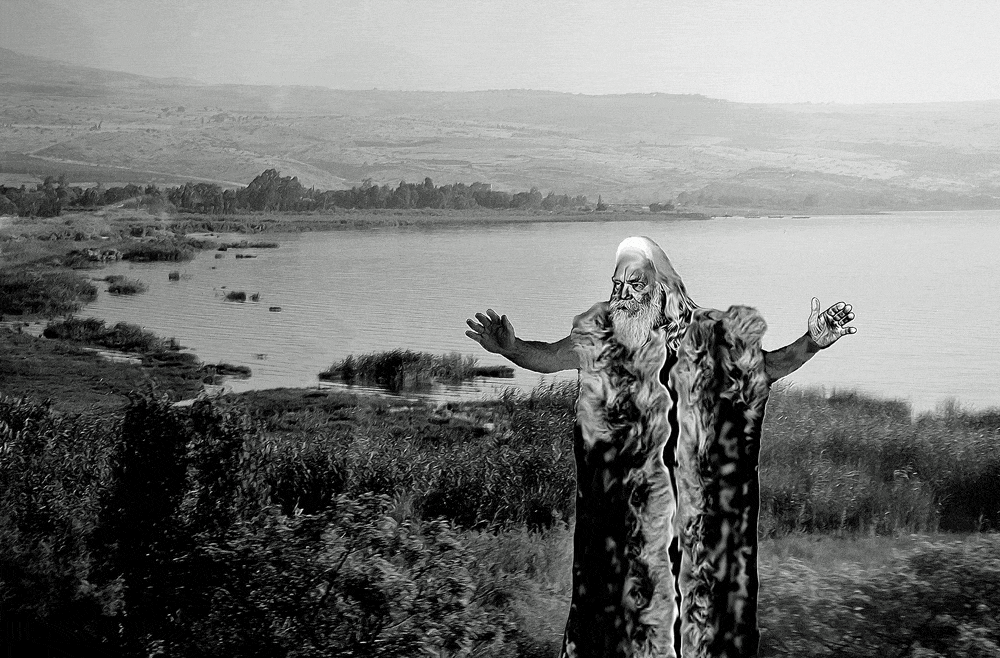

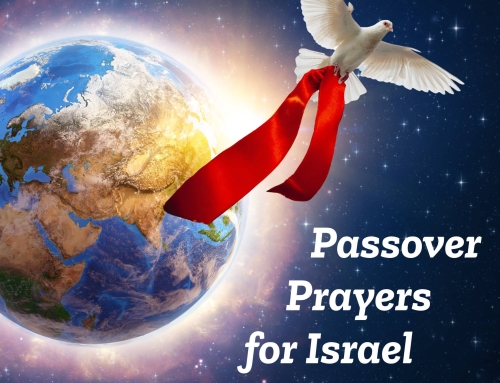
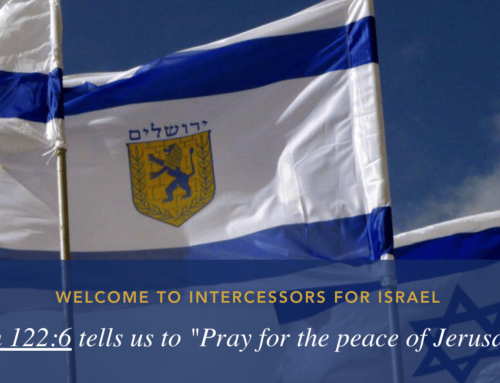

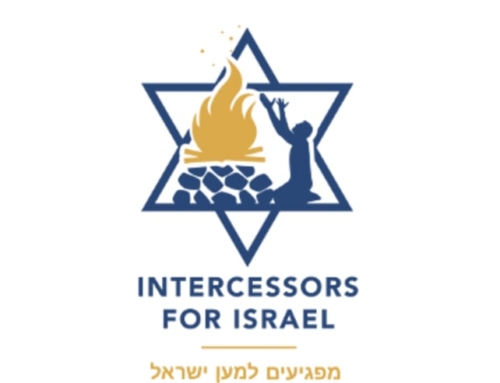
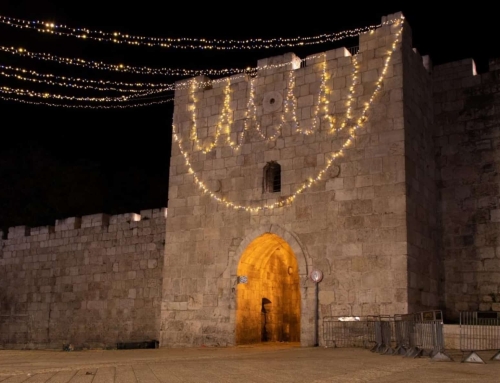
John, Tremendous insight as to the sheepskin being Elijah & Elisha. As for the interpretation of the rapture, I don’t see it. (Because this is a protestant invention.) Also, Paul is not saying that all Israel will be saved, just that which has become Israel through faith. Jesus himself stated that much of Israel will not be saved but given to others. The wedding parables tell how many are called but few are chosen. The Spirit of God is cast upon the covenant people but the right to enter the wedding feast is revoked, as those who come arrive without the righteous robes of the Bridegroom, Jesus Christ; for the invited have rejected the Messiah and the invitation was given to others. NOTE: It is not up to ANYONE to “make the Messiah your Shepherd.” Jesus IS the Good Shepherd, Israel. Listen to his voice or be devoured by the mouths of false teachers, who are wolves wrapped in sheepskin.
This is an interesting article, but can you explain exactly what the “spirit of Elijah” was/is and how it was doubled? Thank you